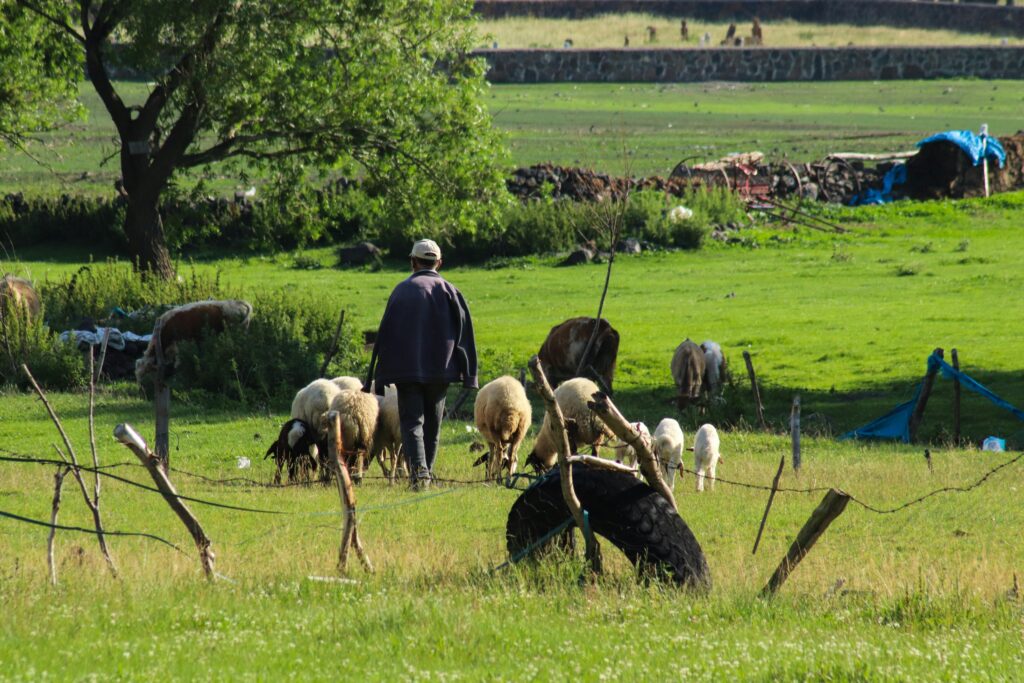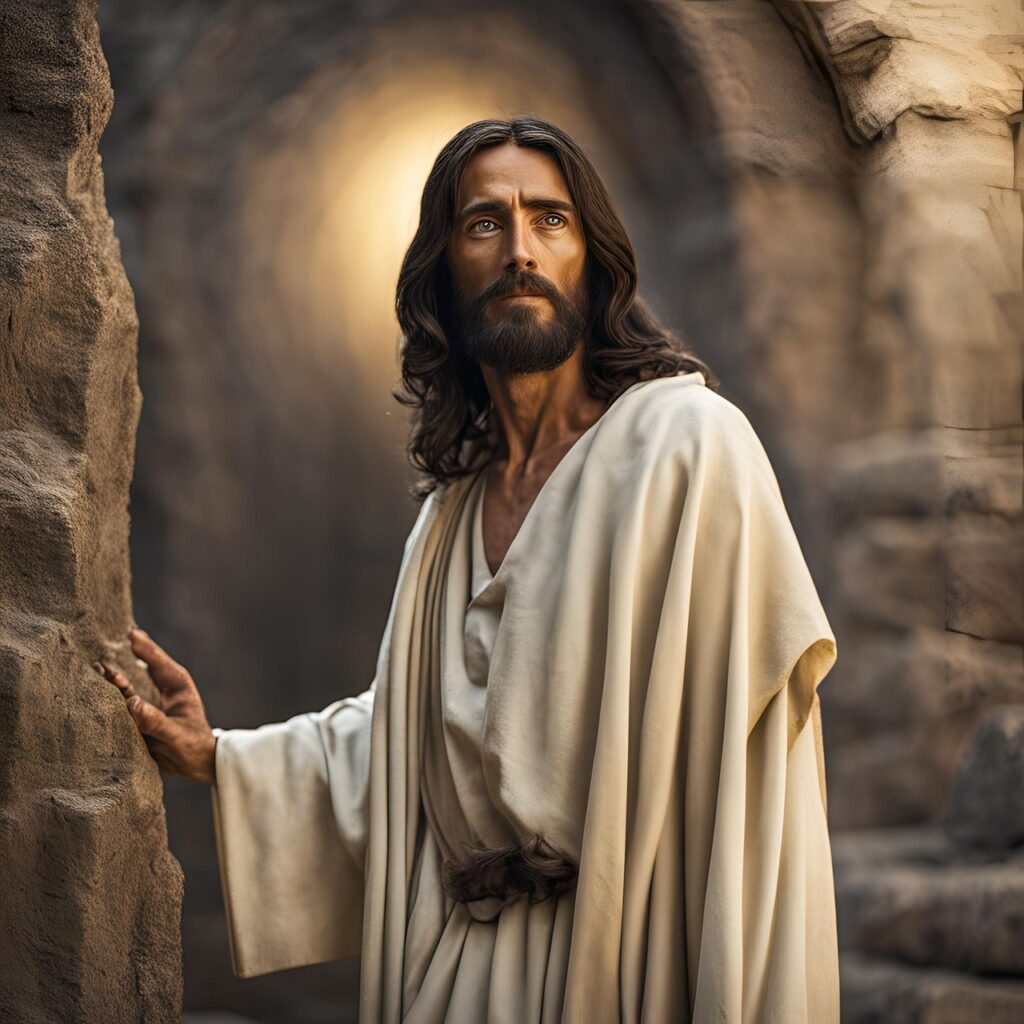Reflection by Bishop Enrique Díaz: The good shepherd gives his life for his sheep
IV Sunday of Easter

Mons. Enrique Díaz Díaz shares with Exaudi readers his reflection on the Gospel of this Sunday, April 21, 2024, titled: “The good shepherd gives his life for his sheep.”
***
Acts 4, 8-12: “Only Jesus can save us”
Psalm 117: “The stone that the builders rejected is now the cornerstone. Hallelujah”
I Saint John 3, 1-2: “Look how much love the Father has had for us”
Saint John 10, 11-18: “The good shepherd gives his life for his sheep”
Last week, at our meeting of Bishops, many topics were discussed: elections, violence, the agenda for peace, vocations, young people… but a topic that always appears in the background as the basis of the entire social structure and ecclesiastical is the family. The impressive statistics of broken families, incomplete families, or families in special situations were paraded before our eyes. The maps of poverty and marginalization, migrant routes, street children, the violence that has destroyed countless homes, tell us about an emergency situation in our beloved Mexico. Hard figures, the product of serious surveys and investigations, that hurt and worry, because behind every number and every statistic there is a child, a woman or a man, who has a broken heart and who loses meaning to their existence. Put in evidence like this, they seem to shout for solutions. Each face carries a harsh family reality in its heart. And more, before the words of the letter of Saint John: “Dear children: Look how much love the Father has had for us, because we not only call ourselves children of God, but we are them.” How can someone, a victim of violence or abandonment, feel loved by God? How to experience love, if not in the family?
Two images are offered to us on this day, both very dear and with a deep meaning, but I fear that both may also be out of place in our modern society. The Letter presents God to us as the Father who dearly loves his children and who awakens in us the desire to be like Him. The Gospel, the tender image of the good shepherd who gives his life for his sheep, who knows them who He is recognized by them, who listen to his voice and who dreams of having them all reunited in a single fold. Strange combination of elements because they also appear in this parable, the eternal love of the Father, the union with his Son and the urgency of a life of communion and brotherhood to carry out the mission entrusted to the Son. How can we now live this experience of a God who loves us above all things, who looks at us as the son of his womb, and who never separates us from his love? How can we feel that protection and care that rural cultures express in the image of the shepherd who is capable of giving his life for his sheep? For most of us, the images of the countryside have remained in our memories and the images of the city occupy the mind and imagination. In recent days, we watched with a friend how a shepherd with many difficulties made his little sheep cross a pedestrian bridge over a large avenue on the edge of the city. “That shepherd is out of place,” he told me, and today when I hear Jesus presenting himself as the good shepherd, this image worries me, thinking that perhaps many also consider Jesus, the Good Shepherd, as out of place.
But beyond the images, there is the reality that they want to present to us through them: a loving God who does not hesitate to call us children, who looks at us with great tenderness, well, there is no greater experience than that of the father or mother who sees shoots sprout from his life, his blood and his person. Likewise, you cannot experience a more beautiful love than feeling like a loved child, receiving life and strength, and all for free. It is the great teaching that Jesus gives us by showing us God as his Father and as our Father, united in love. It is the experience that we all have the right to live in the family: gratuitousness, love, acceptance without conditions, the opportunity to grow, the gift of reciprocity and fraternity. A big, difficult task, but with a richness that fills the heart. Contemplating God as Father/Mother, let us turn our gaze to our families and renew the hope of making each home a meeting of love, understanding, acceptance and gratuitousness. Each family should be the concrete expression of God’s love. When Jesus presents himself to us as the Good Shepherd, he does not simply say that he is a shepherd, but the Good Shepherd. The prophet Ezekiel, when speaking about the bad shepherds of Israel, predicted a unique shepherd who, unlike them, cares about feeding the sheep, is the faithful successor of his father David, who risked his life to save the flock. of the wild beasts. Jesus will go even further. He will not limit himself to risking his life for his flock, he will die to save it. That is why he tells us in this passage: I lay down my life for the sheep. In reality, since he was born, he was giving his life for men, day by day pouring out his existence to help others, until he spent himself completely on the Cross. But that moment was not the end. We could say that it was rather the beginning, the beginning of a new era, that of the messianic time. That is why now the Lord tells us again that he gives his life for us, that he continues to look for us, that he loves us and protects us from the wolves. Let us allow ourselves to be loved, cared for and protected by Jesus, but also let each of us look at our mission as shepherds and review whether we are being faithful to this task and vocation that the Lord has entrusted to us. Very especially, let us be attentive in our families, if we are giving life, if we know him by name, if we recognize his voice, if we are capable of preserving and growing in love.
Today I settle into the loving arms of God the Father and let myself be loved; Today I abandon myself to the shoulders of the Good Shepherd, who rescues me from my lost paths and returns me to the fold of his protection and care. I allow him to give me his life. Today I feel loved, protected and cared for by God. But today I also feel my commitment to be the face and image of that God of love, especially in the family and in front of those close to me. Today I review my attitude as a pastor who must give life and give life, I look at each one of those who have been entrusted to me in different ways to see if they receive care, protection and affection from me. The family, my family, How do you respond to this image of God? How do you live in it, in unity, in love? Is it a source of life and understanding?
Loving Father, who in your Son Jesus has left us the image of your love that seeks, that forgives, that builds and that gives life, grant us to build families that generate life and build peace and love. Amen.
Related

Reflection by Bishop Enrique Díaz: The Lord’s mercy is eternal. Alleluia
Enrique Díaz
27 April, 2025
5 min

After Eight Days Jesus Arrived: Commentary by Fr. Jorge Miró
Jorge Miró
26 April, 2025
3 min

The Perspectivas del Trabajo Foundation is founded with the aim of promoting virtues for professional development
Exaudi Staff
25 April, 2025
2 min

Reflection by Bishop Enrique Díaz: Alleluia, alleluia
Enrique Díaz
20 April, 2025
5 min
 (EN)
(EN)
 (ES)
(ES)
 (IT)
(IT)

